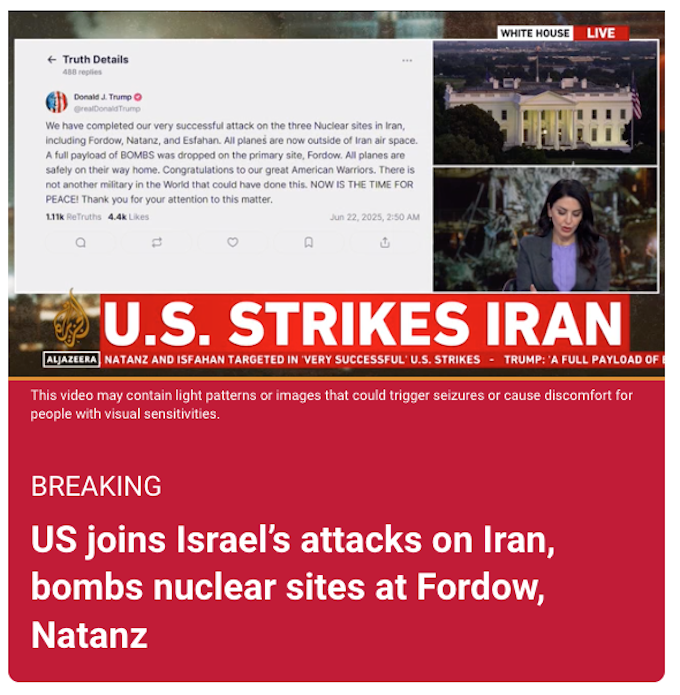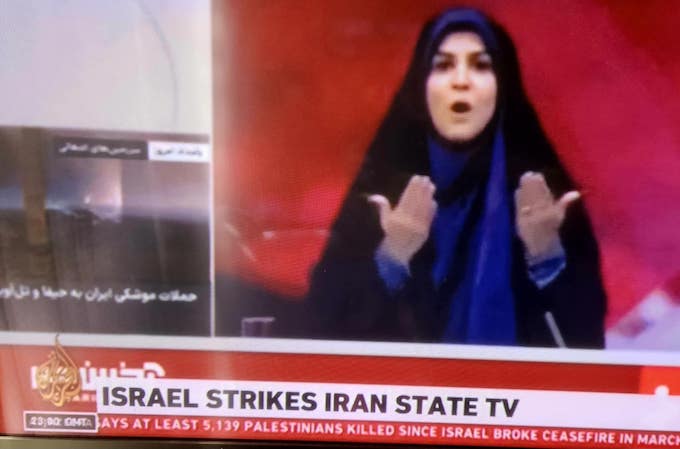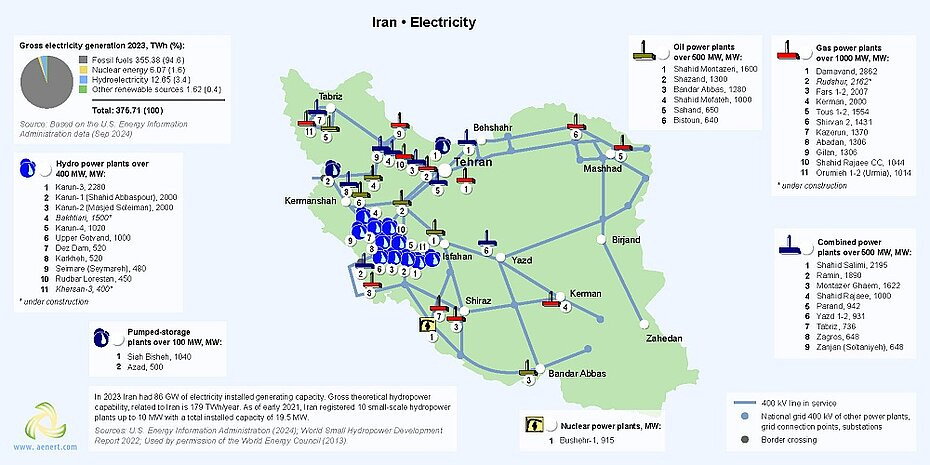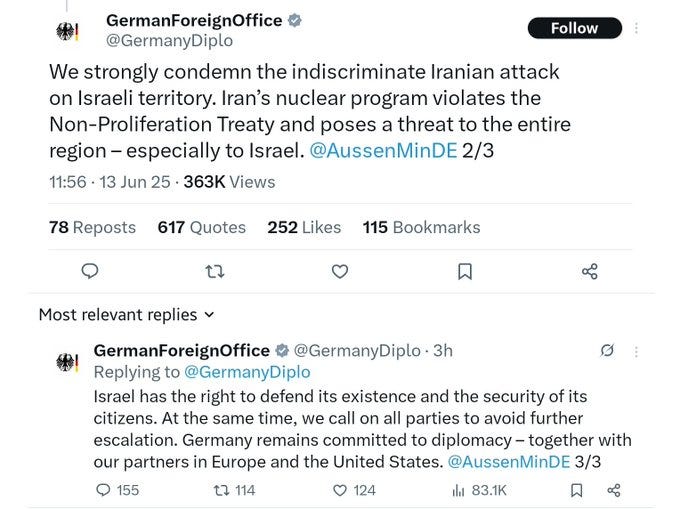A woman approved for assisted dying who lives with severe myalgic encephalomyelitis (ME) in Canada wants to issue a stark warning to the UK government over its plans to cut chronically ill and disabled people’s benefits, labelling them a “death march off a cliff”.
In tandem with Kim Leadbeater’s assisted dying bill currently making its way through parliament, she has argued the UK risks putting “the cart before the horse”. In this context, she has said the cuts amount to nothing short of “a form of eugenics”.
Marcia: severe ME patient in Canada has a message ahead of assisted dying bill
As the Canary previously reported, Marcia – known online as ‘Madeline’ – is a resident of British Columbia, Canada. For 45 years, she has lived with the chronic systemic neuroimmune disease ME.
After years of medical and state neglect, Marcia’s ME has only continued to worsen. It has tipped her into severe ME. In these cases, people living with severe ME are mostly, if not entirely permanently bed-bound or hospitalised. On top of this, they are often unable to digest food, communicate, or process information. In short, severe ME patients are fully dependent on others for their care.
The Canary detailed how:
the illness is under-recognised in British Columbia’s medical system. Specifically, it lacks an Medical Services Plan (MSP) category of coverage. Essentially, this is British Columbia’s public health insurance scheme. It means that the state is leaving Marcia without critical care.
As a result, it has forced Marcia into $45,000 medical debt. Given this, Marcia has had to rely on crowdfunding to survive. Her health has deteriorated to the point the state has approved her for Medical Assistance in Dying (MAiD). However, Marcia wants to live despite the severe ME/CFS.
Now, Marcia is raising the alarm from Canada over what’s currently unfolding in the UK. She cautions the UK government against the perfect storm of welfare cuts and the prospective legalisation of assisted dying.
Canada’s failing healthcare and welfare systems indirectly coercing Marcia to assisted suicide
Marcia speaks from her own experience. Right now, she lives month to month on her Go Fund Me donations. There’s the harrowing prospect of running out of money to afford the basic medications and supplements that help keep her pain levels bearable.
That intolerable pain is one of the reasons she applied – and has been approved for – Medical Assistance in Dying (MAID).
She told the Canary that:
where I am right now, is every time I get a month away from running out of money, I start to crawl out of my skin. There’s a brutality to being that close to dying, you know? Yeah. And I’m not exaggerating.
I’m not chicken-littling it. I know my body. I know what happened during the Covid lockdown when I lost access to just two supports. I know my disease. I watched my grandma die. I was with her the month before she died. I know how this plays out. If I’m lucky, it’s a heart attack, mitochondrial failure in the heart. If not, then the brutality of suffering could take years.
And I can’t do that. I like myself. I wouldn’t do that to myself…My pain levels are never below a seven. When it cycles between an eight, nine, ten, it starts to destroy me. But none of that needs to be there. All of that could be better managed were I to have supports.
Crucially, Marcia explains that she applied for MAID because she feels she has no other choice. She has not applied to it because she wants to die. Instead, she has pointed to the dire lack of disability welfare and medical care coverage. In tandem, these continue to cause her health and quality of life to deteriorate. If she were able to have access to adequate healthcare and support to live her life, she wouldn’t need MAID. Put more succinctly, the Canadian and BC governments failure to adequately cover her healthcare needs is pushing her towards assisted suicide.
There’s currently no cure or treatments specifically for ME – as the Canary has covered in detail before. However, Marcia, like many patients living with it – and chronically ill and disabled people more broadly – knows her body best. After more than 45 years of living with ME, she has found some medicines, supplements, and supports that stabilise some of her more debilitating symptoms.
So, as she painfully highlighted:
What’s happening is bonkers. Like, if I were to die from what’s happening to me, after I figured out solutions, it’s like dying from slipping on a banana peel.
The problem is however: the state doesn’t provide her with the financial means to afford these basic supports.
Disability welfare systems: parallel pitfalls
Marcia’s disability assistance doesn’t cover the costs of most of the supports she needs.
BC’s Women’s Hospital’s Complex Chronic Disease Clinic (CCDC) prescribed pre-made meals to a certain diet, supplements, and particular medicines for Marcia’s mitochondrial failure and Coeliac disease. The clinic considers these non-negotiable energy-saving supports for Marcia. However, she explained how the cost of these would far exceed what the BC government’s Ministry of Social Development and Poverty Reduction (MSDPR) provides her in disability assistance benefits.
By her calculations and research, she identified supplements alone would rack up $300-$600 a month. Adding to this, the pre-made meals that meet the specified low inflammation diet, which she needs because she’s too severely ill to make meals, could set her back between $700-900 a month. Topping it off, her additional medications would be a further $30-50 each month. In total, that’s between $1,030-1,550 a month – and is far from the only medication, supplements, and aids Marcia has to fork out for as part of her daily living needs.
Yet, the standard disability assistance is just $1,483.50 a month for a single claimant. To make matters worse, for those living in assisted Community Living, service providers eat up $841.13 of that. It leaves individuals just $642.37 to cover their supplements, extra medication, aids, and other supports. This is not currently Marcia’s arrangement. However, a significant portion of her disability assistance is going towards her social housing costs. In short, it barely scratches the surface of the finances chronically ill and disabled people require to maintain and manage their conditions and disabilities. Marcia’s situation is a case in point of this.
Not enough to live on
Moreover, the minimum wage for a full-time worker is around $3,640 a month. So, not only do chronically ill and disabled people have higher expenses – but if they’re unable to work, they live on less than half the minimum wage of a full-time worker.
Marcia expressed how this legislated poverty is inhibiting her access to the supports that could help her:
the vast majority of things I need are either not covered or covered so minimally as to be inaccessible to me because of how poor I am, and I have no way of filling in the gap of that coverage.
There are clear parallels between the disability welfare systems of Canada and the UK.
It’s a situation that chronically ill and disabled people will know only too well with the UK’s comparable PIP scheme. Similarly, PIP doesn’t meet the extra costs chronically ill and disabled people incur for an equitable quality of life to non-disabled people.
Of course, this is all only set to get much worse with the government’s impending cuts and goal-post shifts to PIP and Universal Credit.
No category of coverage on medical insurance for ME
Marcia highlighted other compounding factors through which the BC state is de facto coercing her towards assisted suicide. For one, not having access to the necessary healthcare has played a significant role in this. Or, more to the point where ME is concerned, healthcare simply not existing at all.
Notably, the provincial BC government provides for only some medical treatments, aids, and supports, but not others.
Marcia’s medical treatments and certain services come under the auspices of a programme known as the Medical Services Plan (MSP). It’s a mandatory medical insurance scheme for residents there. As someone living with severe ME, Marcia’s MSP experience has been marked more by what it doesn’t cover, than what it does.
The BC government website reels off a long list of treatments and supports it won’t cough up for through the MSP. But it’s more than this. While Marcia can get some care covered, there has been an enormous catch.
When physicians submit MSP claims, they have to input a diagnostic code. There are a number of these – each applying to specific diseases, conditions, or umbrella groups of conditions. Naturally, ME does not have a category of coverage. It meant that Marcia has been unable to access treatments. These are ones that she has found alleviate some of her ME symptoms and other conditions.
So, in 2023, Marcia raised this with the BC ombudsman. The BC Ministry of Health told the Ombudsman that:
fee codes are currently available to the doctors who support diagnosis and care to patients with ME. As there are currently fee codes to support ME services, and developing fee codes
based on a condition rather than the service provided is inconsistent with the Payment Schedule, the Ministry said it did not feel it was feasible or appropriate to establish specific ME fee codes.
In short, the Ministry of Health’s response amounted to: ME is covered through existing symptom billing codes and it’d be too expensive to set up a specific diagnostic code for it.
The economic bias ‘driving the bus’
Marcia disagrees on both counts.
For one, she can categorically tell the ministry that she has not been able to access most of the care she needs through the MSP. To her, the use of symptom codes for ME epitomises a major part of the problem. Specifically, she explained how these symptom codes do not include treatments for ME. Without diagnostic codes for it as a disease, she explained that the BC government also lacks statistics on its prevalence. It means it doesn’t have a grasp of patients’ coverage needs.
Consequently, this omission hampers the evidencing of the need for more research, and subsequent physician education. In this way, it’s driving a vicious circle with the result that the MSP is leaving ME patients without necessary care.
She also ardently refutes the idea that it’s more expensive. She detailed how this suggestion stems from a lack of contextual understanding:
if you have a spreadsheet, and you only look at one line on the spreadsheet, and you don’t look at the pluses and minuses and causes of that, that is economic bias.
In other words, state ministries have only looked at the costs in isolation. What they’re not recognising is that failing to provide chronically ill and disabled people adequate financial support has knock on impacts in other areas. For instance, it would hit other aspects of health and social care. It’s this very same fiscal fallacy ‘driving the bus’ on cuts to welfare for chronically ill and disabled people.
Marcia expressed how preposterous the economic ideology at the root of this is:
You’re running around saying you want to save money, then what you’re proposing will do exactly the opposite. It’s bias. And that must be spoken to.
Stark similarities between the UK and Canada
It’s hard not to see the similarities between Marcia’s observations on the BC and Canadian governments, and the UK’s right now.
In fact, a recent DWP report quite literally calculated chronically ill and disabled people’s economic ‘worth’. This estimated how much those who can’t work cost the Treasury. Naturally, it included the purported costs of DWP benefits like PIP.
Even setting aside the morally reprehensible ‘economic burden’ rhetoric at the core of this – Marcia again highlighted how fiscally illogical it is anyway:
allowing a disabled person to deteriorate into qualifying for MAID is dramatically more expensive than maintaining [their health].
And of course, there’s also the flip side to this:
In regards to this nonsense about cutting disability supports because legislators want to save money – let’s talk about the whole economic stimulus that countries are talking about across the world – definitely here in Canada and definitely in the UK. Think of what happens if you give disabled people the money and supports they need. Those monies go straight out for services and important items.
I’m not a dragon like something from Lord of the Rings on a horde of gold. I have vast needs that get more and more expensive as I deteriorate. So from a completely bloodless point of view, giving disabled people the money and supports that they need to have a baseline level of adequate quality of life is a huge economic stimulus. That money flows right back out into the economy.
Conversely, she highlighted that under these woeful welfare and healthcare circumstances that currently persist, there’s only one way chronically ill and disabled people ‘cost less’ to the public purse.
Marcia isn’t off the mark either. The UK government has sized up how much legalising assisted suicide for terminally ill disabled people could save the economy. In May, the government’s impact analysis of the assisted dying bill put a figure on what this would be in health and social care, benefits, and pension cost terms.
That is, as the Disability News Service noted, it calculated the savings from “unutilised” healthcare services, unpaid pensions and disability entitlements.
Eugenics by any other name
Marcia voiced to the Canary how this situation where governments offer support for chronically ill and disabled people to die, but not the support they need to live, has a simple, yet sinister name:
the cold hard fact is, current disability supports around the world are a death march off a cliff and always have been a death march off a cliff. It always has been a form of eugenics.
And that’s exactly what’s happening to me. I have a disease that doesn’t have a category of coverage.
Marcia therefore issued a warning to the UK government:
I was going to put out a suggestion to the UK in regards to this legislation. Before you put the cart before the horse, you have to sort out the death march off a cliff.
For that, she believes that the different government departments need to join-up their thinking:
I think one of the cruxes that I keep feeling about the UK’s start of MAID legislation is that if you don’t have the liaising bodies…then the UK is not going to put them in place later. And so much of their disability policies are running in the same siloed ways where supports are administered in one ministry but the impacts of lack of supports are felt in the Ministry of Health without any reckoning that disability cuts actually cost the system truckloads more than simply maintaining and managing.
I think while people might be saying ‘well we’re only looking at MAID on foreseeable death’, MAID on quality of life came quickly afterwards here in Canada, and without these things being problem-solved, then they will never be problem-solved.
Marcia explained to the Canary that it was only when MAID came in that politicians, medical professionals, and the media began to finally register – but just barely – the disjointed policy landscape that leaves disabled people to fall through the cracks. Of course, the outrageous levels of state-sanctioned poverty is something chronically ill and disabled people have known and been shouting about for decades. However, as Marcia noted:
the problem is unconscious bias throughout various systems has been very clearly saying via policies ‘disabled people don’t know what they’re talking about’.
In other words, these problems have been there all along. However, the issue is that governments haven’t been listening to chronically ill and disabled communities when they tell them.
Systems failing disabled people due to siloing and ignorance
Consequently, Marcia has witnessed the results of this selective and deliberate ignorance firsthand in her fight for financial support. She described the game of “pass the potato” that has characterised her care.
Medical professionals haven’t understood the woefully inadequate support she receives under the current disability welfare system and the MSP. She expressed that:
I’ve had doctors get mad at me that I wasn’t doing what they asked me to do. And I’m like, there’s no coverage for that.
One physician who Marcia “really likes” and considers a “good doctor” exemplified this glaring lack of awareness within medical circles. Marcia explained that:
I was talking about a lack of support and she said, ‘well, the government can’t cover everything’.
And I was like, the government is covering hardly anything. And I went away and thought about it. And I came back and I said, ‘do you know how much PWD [people with disabilities] on assistance get for a month money-wise?’ And she said, no. And at the time it was $1,183 a month, which is outrageous. And so I said that to her and she went a little white, but she had no idea.
So I started saying it to all of my medical providers. Not one of them knew that the deficit ran that deep. And then she started asking me, ‘how do I get X, Y, or Z support?’ I said, ‘why do you not ask bureaucrats to come to all of those medical conferences to teach you how to ask for these supports?’ And she was like, ‘that’s a great idea’. And all I can think is, why is it my idea?
The ‘great othering’: stigma, siloing, and scapegoating go hand in hand
At the end of the day however, the siloing ultimately suits governments’ cost-saving agendas. Marcia views this as a product of “unconscious” bias.
So, Marcia argued that:
it doesn’t change until we acknowledge what’s driving this siloing, what’s driving this bias. And that’s this idea of the othering of disability.
In Marcia’s view, that “othering” is the pervasive and persisting stigma that shames chronically ill and disabled people for their conditions:
And it’s the great othering that is actually rooted in ancient humanness. Like, ‘oh if you’re disabled then demons must have done it’ or ‘you have bad karma’. And nowadays it’s ‘you didn’t vision board, you didn’t exercise, you didn’t eat the right foods, you didn’t do your affirmations, you didn’t manifest’.
In short, it’s a state and system that frames the continuing severity of a chronic illness and inability to get better, or a barrier a disabled person cannot surmount, as an individual failing. Instead, Marcia wanted to drive home that it’s the state’s failures, systemic ableism, and societal barriers that’s at the heart of all this.
Ultimately, she said that:
In spite of the simple fiscal truth that deterioration always costs more than appropriate disability management, in spite of my best efforts I am being allowed to unnecessarily deteriorate into an entirely avoidable life and death situation where the only empowerment I am afforded is what kind of death.
Providing chronically ill and disabled people with the financial support, the medication, aids, and treatments we need to live should be a given. That Marcia even has to make the economic case for her right to these shows just how far down the late-stage capitalist abyss neoliberal governments have now taken us. Cutting disability supports while constructing the legislative and medical infrastructure for assisted dying may be dressed up as “fiscal” and “moral” responsibility. However, hiding it won’t change the eugenicist reality of where it all leads.
How you can help Marcia
Marcia has set up a petition. One of its core demands is that ministries end the siloing over disability supports. It also calls for the MSDPR to increase disability assistance to meet the minimum wage. Marcia welcomes international support, recognising that many of the demands could serve as a template for what needs to change in countries around the world. You can add your name to this here.
On 17 June, Marcia will be speaking at the BC government’s Select Standing Committee on Finance and Government Services. The committee ultimately makes decisions around the budgeting of BC’s services. She will be talking about her experiences as a person living with severe ME. Crucially, she will make the case for a liaising body and better supports to address these issues. You can watch the meeting here.
In the meantime however, Marcia is reliant on donations to her GoFundMe. Right now, with the abysmal state of disability welfare, it’s no exaggeration to say these funds are keeping her alive. Unconscionably, as she teeters on the brink of state failures tipping her into destitution and irreversible further dire health deterioration, the goodwill of strangers is the only thing between her and MAID.
Feature image via Youtube screengrab – CTV News
By Hannah Sharland
This post was originally published on Canary.



 she/they (@ChronicallyVex)
she/they (@ChronicallyVex) 
 (@ChasingGlimmers)
(@ChasingGlimmers) 





 BREAKING: Israeli forces open fire on Palestinians waiting for aid in Gaza
BREAKING: Israeli forces open fire on Palestinians waiting for aid in Gaza
 Tank massacre
Tank massacre